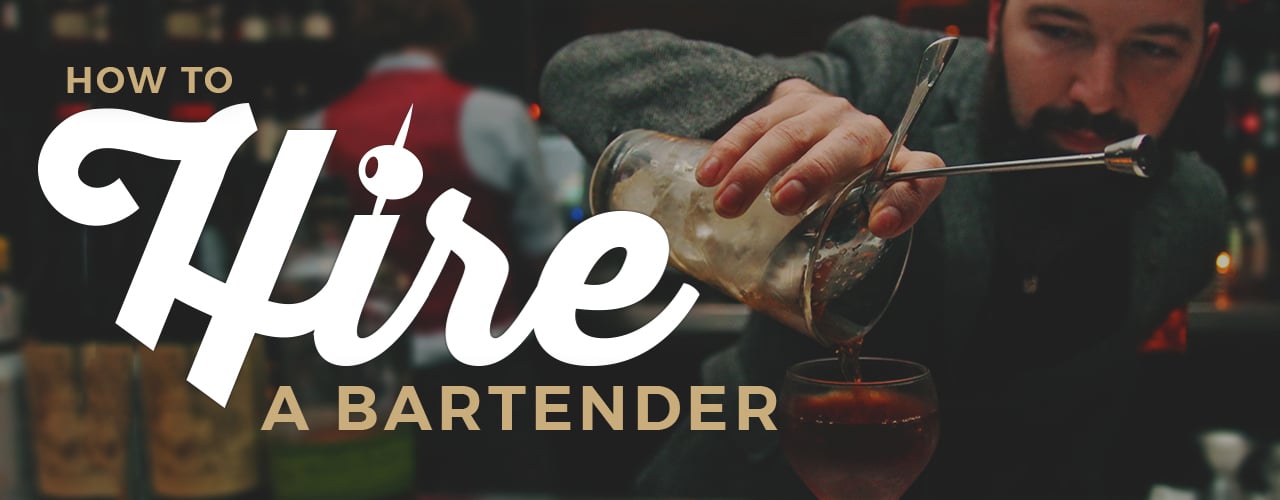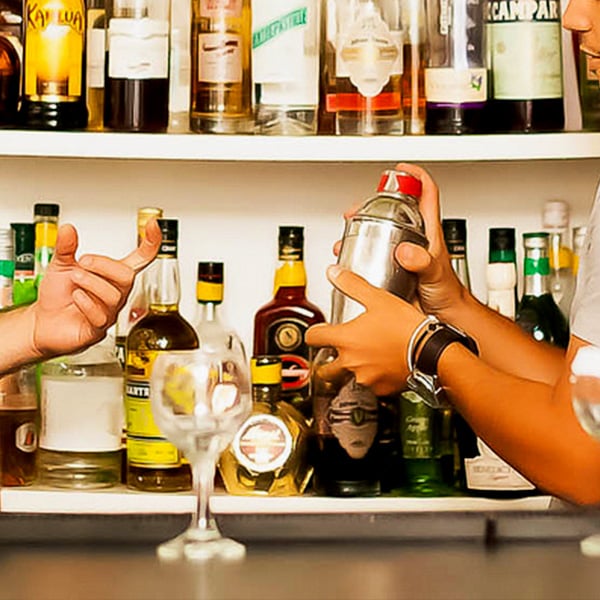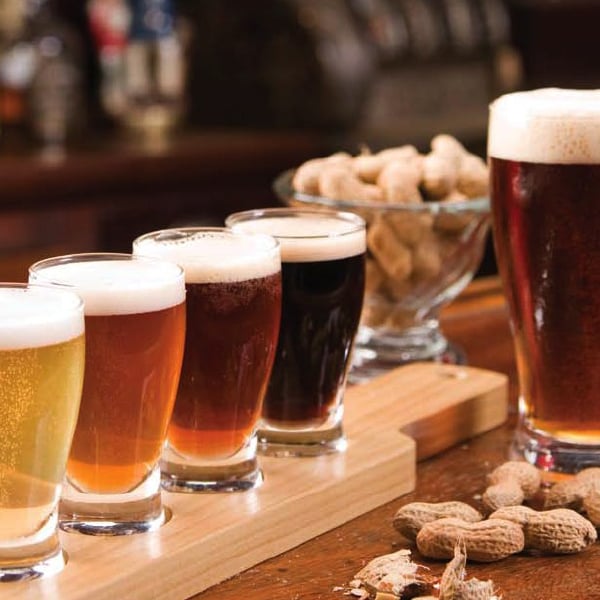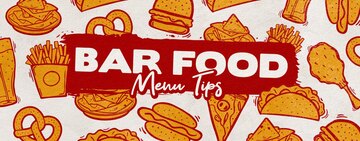
Bartending is a complex job that requires employees to juggle multiple tickets at once, upsell customers, facilitate sales, remember complicated drink recipes, and much more. But, having a staff of competent bartenders is essential for ensuring the success of your bar. We'll walk you through all the steps of how to hire a bartender from writing a job description to interview tips, to ensure you find the right candidate for your bar or restaurant.
Types of Bartenders
There are many different types of bartenders, each with varying levels of education and experience, and not every bartender is the right fit for each bar or establishment. For example, you wouldn't need a highly skilled sommelier or cicerone to serve drinks at your wedding reception or catered event. So, before you start writing up your bartender job description, it's best to know the five main types of bartenders, so you can adjust your expectations and decide which type is best for your business.

1. Bartenders
The most common type of employee in the bar industry is a standard bartender. The bartender is responsible for mixing cocktails and taking orders, but they're also responsible for creating a welcoming atmosphere for the customers that helps facilitate sales. The main difference between a mixologist and a bartender is that the mixologist focuses on the cocktails whereas the bartender focuses on the customer and providing an excellent experience.
2. Mixologists
Some people think of mixologists as glorified bartenders, but a true mixologist utilizes many skills that set them apart from the rest of the staff. Most mixologists have a background at a bartending school, and they know how to craft new cocktail recipes, create ingredients such as bitters and syrups, and design seasonal cocktail menus.
3. Bar Back
Bar back is an entry-level position in a bar, making it ideal for aspiring bartenders with no experience. The bar back works as an assistant to the bartenders by performing tasks such as stocking your bar with alcohol and disposables, prepping mixers and garnishes, and changing kegs. Hiring a bar back is essential for busy bars and restaurants, as they allow your bartending staff to focus on the customer and making drinks.
4. Sommeliers
A sommelier is a highly trained employee that specializes in wine. Sommeliers work to create wine lists, suggest wines to individual customers, and train other staff on proper wine service. Due to their years of training and education, hiring a sommelier is very expensive, so you should only consider it if your establishment has an extensive wine list. Additionally, most sommeliers won't handle typical bartending responsibilities, such as mixing cocktails or serving beers.
5. Cicerones
Cicerones are bartenders that have completed their Cicerone certification and are experts in the flavors, styles, and service of beer. Cicerones should also have a good grasp on the best type of glass to serve your beer in and good beer and food pairings to suggest to your customers. Additionally, Cicerones may complete other bartending tasks, such as pouring beers, washing glasses, taking orders, and mixing cocktails. Due to their expansive knowledge of beer, hiring a Cicerone is ideal for breweries and bars with a large beer selection.
Bartender Skills
Bartending is a specialized profession that requires specific characteristics, so when hiring a bartender, there are specific skills that you should look for. Here are some of the main bartending skills your candidate should have:
- Multi-Tasking: Bartenders need to be able to create drinks while also taking orders and maintaining a rapport with customers.
- Excellent Time Management: It is important that your bartender can create drinks efficiently without overpouring so customers don't get impatient.
- Outgoing: Working in a bar requires a certain type of personality, and having an outgoing and compassionate attitude can help create more sales. The ideal bartender should be able to connect with your patrons and make them feel welcome and comfortable.
- Sales Ability: One of the most important skills for a bartender is sales skill and the ability to upsell customers. Upselling involves suggesting guests choose top shelf liquors or make additional purchases, such as food to accompany drinks.
- Responsible: In addition to valuable bottles of alcohol, bartenders have access to more money than anyone else in the bar or restaurant. Be sure to check potential applicants' backgrounds to ensure they're someone you can trust.
Bartending Safety Certifications

When hiring a bartender, you must be sure that your potential employees have all of the necessary safety certifications. If your employees do not have the proper certifications, your business can face fines, increased insurance costs, the loss of your liquor license, or even imprisonment. There are two major safety certifications that you should check for: TIPS and ServSafe Alcohol.
- ServSafe Alcohol is a branch of ServSafe that was developed by the National Restaurant Association (NRA), and it's designed to prepare bar employees to serve alcohol responsibly. To become ServSafe Alcohol certified, your employees need to read documents, attend a class, and pass an exam.
- Training for Intervention ProcedureS (TIPS) is a global leader in education and training for the responsible sale, service, and consumption of alcohol. Their goal is to help foodservice industry employees prevent drunk driving, underage drinking, and intoxication in order to keep staff and patrons safe. Similar to ServSafe Alcohol, employees must read documents and pass an exam to become TIPS certified.
Additionally, some states have liquor control boards that offer initiatives that teach service industry staff to identify signs of intoxication, detect a fake ID, and handle other alcohol safety-related issues.
Writing a Bartending Job Description
Once you've outlined what type of bartender you need in your bar or restaurant and what certifications are necessary, you can begin writing a job description. Your job description should have four main sections: the job title, job summary, responsibilities and duties, and qualifications and skills.
- Job Title: Your job title should include a general term, such as bartender or bar back, so it's easy to find. You can also add additional information such as any qualifications to help weed out under-qualified candidates.
- Job Summary: Your job summary should give applicants an idea about what type of business you are and what you're looking for to help determine if they'd be a good fit.
- Responsibilities and Duties: This section is the most important, and it's where you'll outline the duties that you expect the new employee to perform. This should include things like customer service, keeping the bar area clean, making drinks, and handling money.
- Qualifications and Skills: This section should include education, experience, and certification requirements, such as a high school diploma or bartending school experience. You can also include personality traits and skill requirements, such as excellent interpersonal skills or sales ability. Additionally, you may also want to specify if there will be heavy lifting or dealing with food and alcohol shipments involved.
Once you've created your bartender job description, you can post your listing on major job searching sites like Indeed, Craigslist, or Monster. If you're looking for a specialized employee though, such as a sommelier or Cicerone, you can also consider posting your job description on specialized sites.
Interview Questions for Bartenders

Once you have a few bartending candidates lined up, your next step will be to hold phone or in-person interviews. While you may have some questions in mind, here are some additional questions you should ask potential employees:
- Have you run a full bar before, or do you only have experience working in a service bar?
- How can you tell if a customer has had too much to drink?
- How would you handle a patron that has had too much to drink?
- Which safety certifications do you have?
- How do you handle unhappy customers?
- If a customer is dissatisfied with the flavor or strength of their drink, how would you handle the situation?
- What was the environment like in your previous bartending position?
- How do you handle working in a busy and high-stress environment?
During the interview, you want to ensure that your potential bartender can handle unruly customers, busy shifts, and unexpected situations. If your candidate passes the interview section, also consider asking them to prepare a few sample cocktails at your bar so you can observe their skills firsthand.
The right bartender should blend craftsmanship, technical knowledge, personality, and sales, so it's important that you choose wisely. Additionally, choosing the best candidate can ensure the success of your business and lead to increased sales and more return customers.





